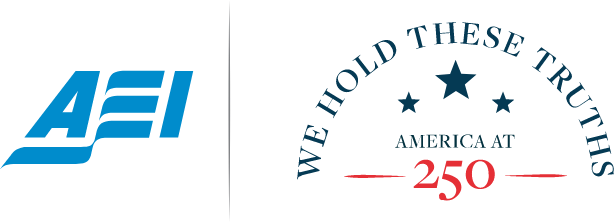Democracy and the American Revolution
Lincoln’s Declaration and the Coherence of Democracy Notes
- Abraham Lincoln, “Fragments on the Constitution and the Union,” Collected Works of Abraham Lincoln, January 1861, https://quod.lib.umich.edu/l/lincoln/lincoln4/1:264.
- For an excellent and penetrating analysis of Abraham Lincoln’s commitment to majority rule, see James H. Read, Sovereign of a Free People: Abraham Lincoln, Majority Rule, and Slavery (Lawrence, KS: University Press of Kansas, 2023).
- Abraham Lincoln, “First Inaugural Address,” Collected Works of Abraham Lincoln, March 4, 1861, https://quod.lib.umich.edu/l/lincoln/lincoln4/1:389.
- See Daniel McCarthy, “Willmoore Kendall: Forgotten Founder of Conservatism,” Imaginative Conservative, March 29, 2017, https://theimaginativeconservative.org/2017/03/willmoore-kendall-conservative-movement-daniel-mccarthy.html; and Glenn Ellmers, The Soul of Politics: Harry V. Jaffa and the Fight for America (New York: Encounter Books, 2021).
- Harry V. Jaffa, Crisis of the House Divided: An Interpretation of the Issues in the Lincoln-Douglas Debates (Chicago: University of Chicago Press, 2009), xi.
- Abraham Lincoln, “‘A House Divided’: Speech at Springfield, Illinois,” Collected Works of Abraham Lincoln, June 16, 1858, https://quod.lib.umich.edu/l/lincoln/lincoln2/1:508.
- Jaffa, Crisis of the House Divided, 281.
- Lincoln, “‘A House Divided.’”
- Willmoore Kendall and George W. Carey, The Basic Symbols of the American Political Tradition (Washington, DC: Catholic University of America Press, 1995).
- Eric Voegelin, The New Science of Politics: An Introduction (Chicago: University of Chicago Press, 1987).
- Eric Voegelin, The Collected Works of Eric Voegelin: Anamnesis, ed. David Walsh, trans. M. J. Hanak (Columbia, MO: University of Missouri Press, 2002), 6:384.
- See, among other writings, John C. Calhoun, “A Discourse on the Constitution and the Government of the United States,” in Union and Liberty: The Political Philosophy of John C. Calhoun, ed. Ross M. Lence (Indianapolis, IN: Liberty Fund, 1992), 132.
- John Locke, Second Treatise of Government (Indianapolis, IN: Hackett Publishing Company, 1980).
- Locke, Second Treatise of Government, para. 95.
- Locke, Second Treatise of Government, para. 96.
- James Madison, “Speech Introducing Proposed Constitutional Amendments,” in The American Republic: Primary Sources, ed. Bruce Frohnen (Indianapolis, IN: Liberty Fund, 2002).
- Locke, Second Treatise of Government, para. 20.
- Abraham Lincoln, “Speech in Independence Hall, Philadelphia, Pennsylvania,” Collected Works of Abraham Lincoln, February 22, 1861, https://quod.lib.umich.edu/l/lincoln/lincoln4/1:376.
- Abraham Lincoln, “Speech at Chicago, Illinois,” July 10, 1858, Collected Works of Abraham Lincoln, https://quod.lib.umich.edu/l/lincoln/lincoln2/1:526.
- Abraham Lincoln, “First Debate with Stephen A. Douglas at Ottawa, Illinois,” Collected Works of Abraham Lincoln, August 21, 1858, https://quod.lib.umich.edu/l/lincoln/lincoln3/1:1.
- Abraham Lincoln, “To Joshua Speed,” Collected Works of Abraham Lincoln, August 24, 1855, https://quod.lib.umich.edu/l/lincoln/lincoln2/320.
- Abraham Lincoln, “To Henry L. Pierce and Others,” Collected Works of Abraham Lincoln, April 6, 1859, https://quod.lib.umich.edu/l/lincoln/lincoln3/1:98.
- Abraham Lincoln, “Speech at Lewistown, Illinois,” Collected Works of Abraham Lincoln, August 17, 1858, https://quod.lib.umich.edu/l/lincoln/lincoln2/1:567.
- Abraham Lincoln, “Speech at Philadelphia,” Collected Works of Abraham Lincoln, February 1, 1861, https://quod.lib.umich.edu/l/lincoln/lincoln3/1:90.
- Abraham Lincoln, “Speech at Peoria, Illinois,” Collected Works of Abraham Lincoln, October 16, 1854, https://quod.lib.umich.edu/l/lincoln/lincoln2/1:282.
- On Lincoln’s commitment to prudence, see Greg Weiner, Old Whigs: Burke, Lincoln, and the Politics of Prudence (New York: Encounter Books, 2019).
- Abraham Lincoln, “To John C. Fremont,” Collected Works of Abraham Lincoln, September 2, 1861, https://quod.lib.umich.edu/l/lincoln/lincoln4/1:929. John C. Frémont replied in moralistic terms, requesting that Lincoln make his order countermanding Frémont’s explicit. Lincoln did so on September 8, 1861, again citing the illegality of Frémont’s proclamation.
- Noah Feldman, The Broken Constitution: Lincoln, Slavery and the Refounding of America (New York: Farrar, Straus and Giroux, 2021). For a defense of Lincoln’s spirit of compromise, see Greg Weiner, “Lincoln and the Moral Dimension of Compromise,” American Political Thought 11, no. 2 (Spring 2022): 253–63, https://www.journals.uchicago.edu/doi/10.1086/719356.
- Abraham Lincoln, “Speech at Chicago, Illinois,” Collected Works of Abraham Lincoln, March 1, 1859, https://quod.lib.umich.edu/l/lincoln/lincoln3/1:90.
- Abraham Lincoln, “Speech at Edwardsville, Illinois,” Collected Works of Abraham Lincoln, September 11, 1858, https://quod.lib.umich.edu/l/lincoln/lincoln3/1:13.
- Abraham Lincoln, “Response to a Serenade,” Collected Works of Abraham Lincoln, October 19, 1864, https://quod.lib.umich.edu/l/lincoln/lincoln8/1:128.
- Lincoln, “Fragments on the Constitution and the Union.”
